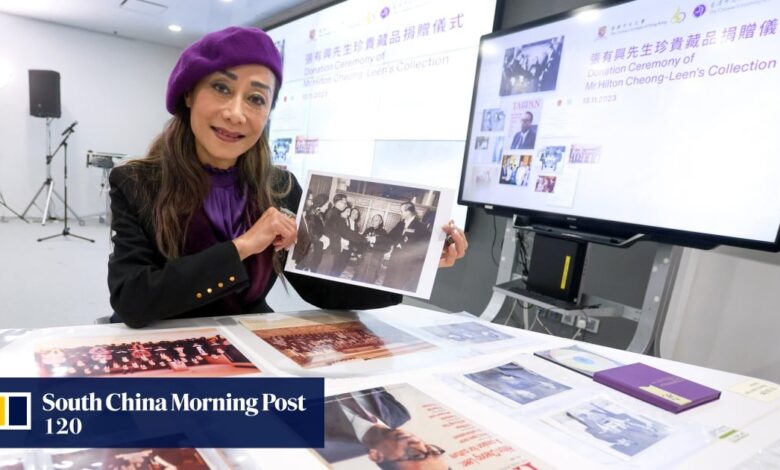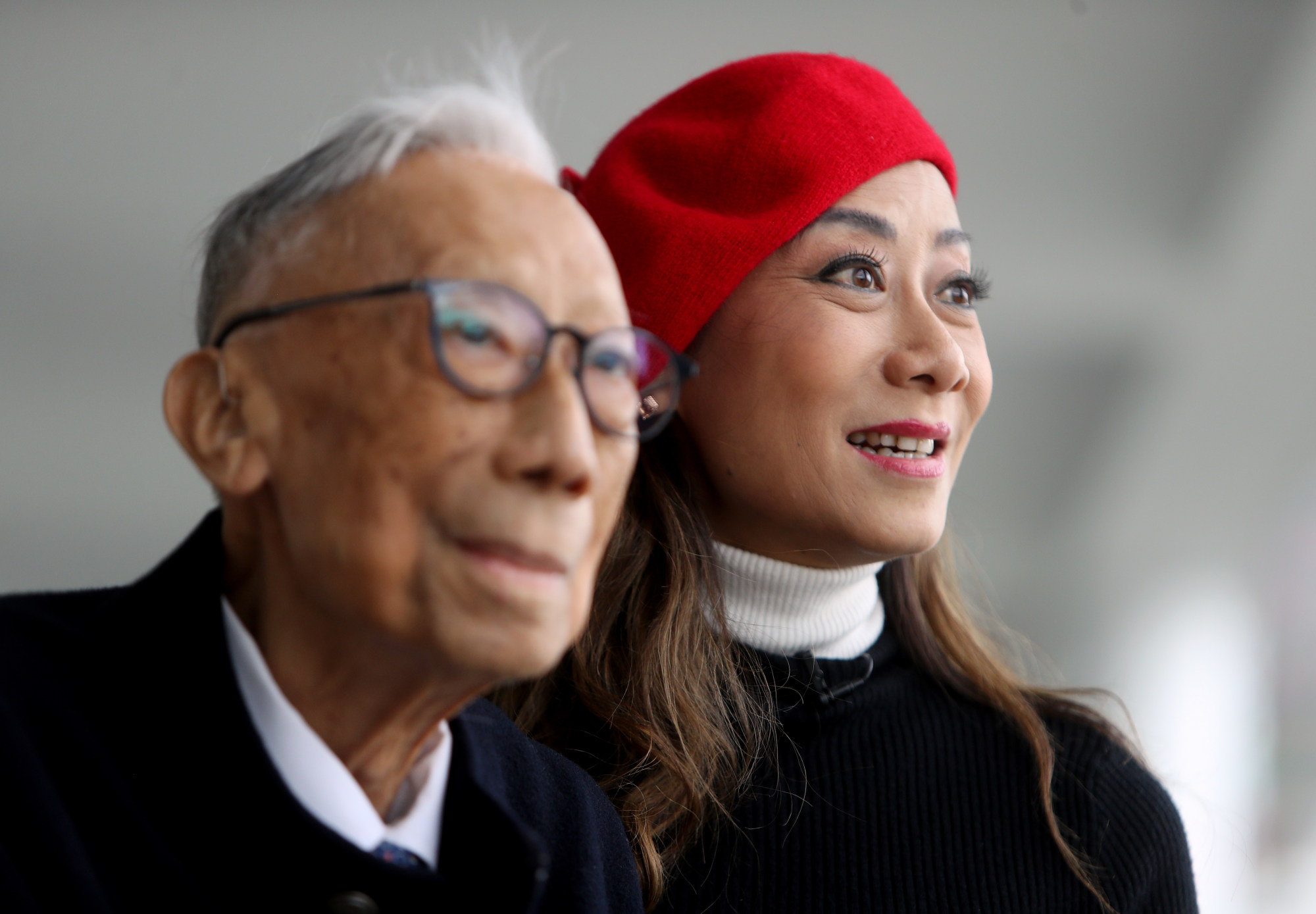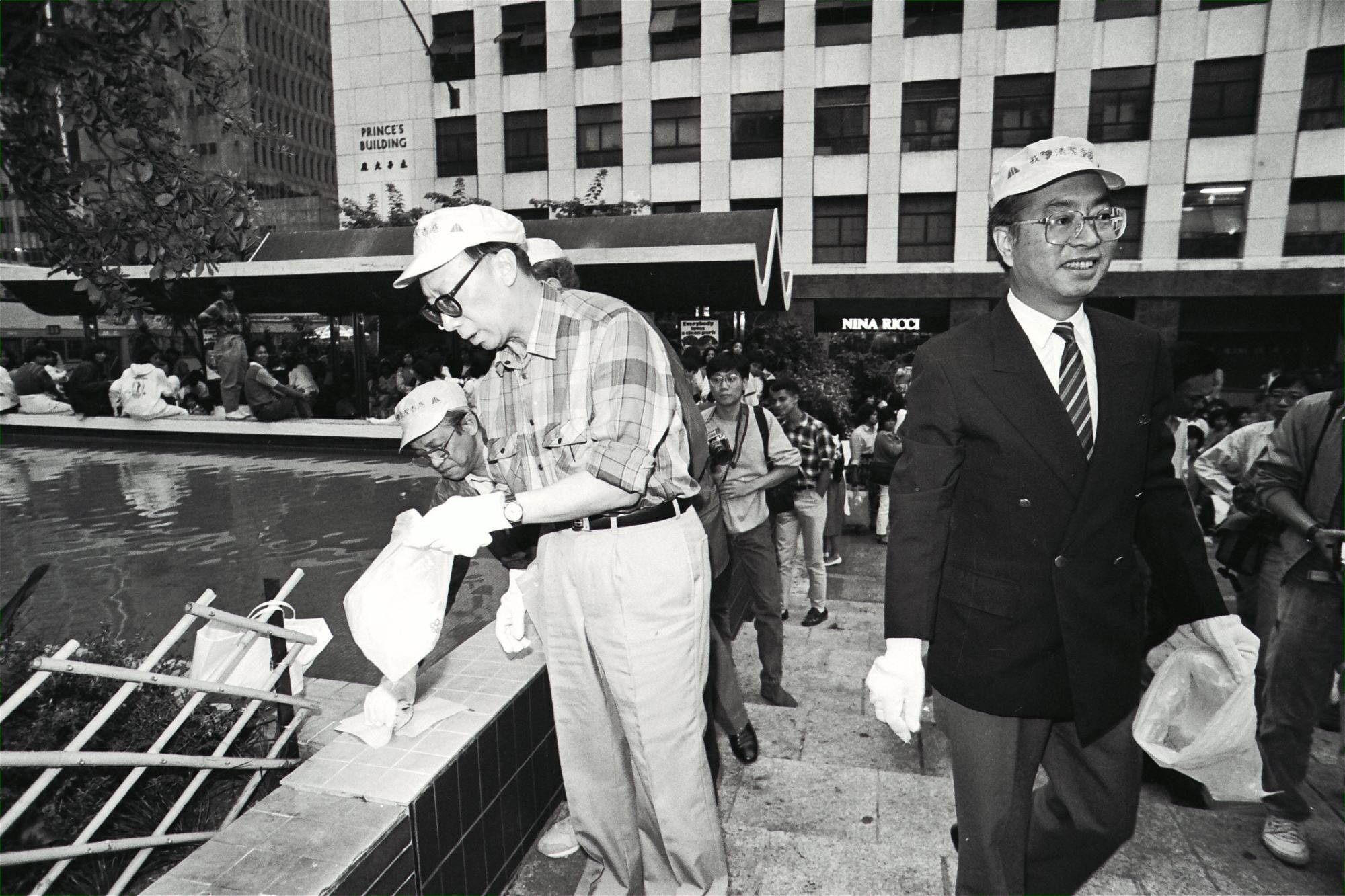‘He was our hero’: Late ‘mayor of Hong Kong’ Hilton Cheong-Leen inspired children to serve, care for less privileged

[ad_1]
Hong Kong ballerina-turned-fashion designer Flora Cheong-Leen thinks back to her younger years and says her father never took her to glitzy parties.
Flora Cheong-Leen said she remembered visits to poor people living in houses made of tin sheets, to hospitals that needed to raise funds for the sick, and to countless villages where her father would speak to the residents about their lives and what they needed.
“My father had a philosophy – you have to serve the people in this world,” his daughter, now 64, said. “He passed that to his offspring. Dad was our hero.”

Hilton Cheong-Leen, the first Chinese chairman of Hong Kong’s former Urban Council, died in January last year, aged 99, leaving Cheong, another daughter and two sons, three grandchildren and three great-grandchildren.
His first wife was Pauline Chow, a soprano known as “the nightingale of China”. After her death, he married classical pianist and porcelain painter Nancy Gan Wan Geok, but they later divorced.
Born in what was then British Guiana, now Guyana, he was aged just nine when he moved to Hong Kong with his family.
He became active in local politics in 1954, when he co-founded the Hong Kong Civic Association, the city’s oldest surviving political group.
He spent 34 years from 1957 as a member of the Urban Council, which oversaw municipal services on Hong Kong Island and Kowloon and was its chairman for five years.
Hong Kong public to view personal items from ‘unofficial mayor’ Hilton Cheong-Leen
Hong Kong public to view personal items from ‘unofficial mayor’ Hilton Cheong-Leen
The council was disbanded two years after the city returned to Chinese rule in 1997.
“Before him, no Chinese walked in front of a Western man at the Urban Council. He fought for Hongkongers’ rights as a minority,” Flora Cheong-Leen said.
She added that her father’s public service through decades of the city’s colonial era was “a crucial aspect” of Hong Kong’s history and that his legacy, including his interactions with the West, could inspire others in the face of the present rising global tensions.
She was speaking after she donated a collection of her father’s personal items to Chinese University last week.
The documents included about 80 speeches and more than 150 letters he exchanged with British officials as council chairman and later as a lawmaker.
There are also more than 200 photographs of him taken with influential figures such as former British prime minister Margaret Thatcher and Deng Pufang, son of China’s late paramount leader Deng Xiaoping.
A history not taught: how book on Hong Kong’s past changed a curator’s life
A history not taught: how book on Hong Kong’s past changed a curator’s life
The collection, which spans 1962 to 2012, will go on display at the university’s library next year.
Hilton Cheong-Leen in the 1960s raised the concept of Hong Kong consciousness centred on “who we are” which in some ways echoed Hongkongers’ calls in recent years to protect the city’s unique identity.
He believed that meaningful change on bread-and-butter issues could be achieved through persuading the government, not taking to the streets.
Flora Cheong-Leen said her father was “a very conservative man” and that she had heated debates with him on many subjects.
She added once, more than 30 years ago, they argued over whether it was safe to go to mainland China.

“He was very concerned about my safety, given that, back then, my fashion style was considered avant-garde on the mainland and fashion shows often faced last-minute disruption,” she explained. “But he was open to everything.”
She insisted on going to the mainland, where she later offered free education in performing arts and dance to underprivileged children for 10 years.
Cheong-Leen added that she had discussed the 2019 social unrest, when Hong Kong was rocked by months of anti-government protests, with her father.
She said that he had told her crises were to be expected, but they would pass and that he described the young protesters as “frustrated children” who did not understand the full picture.
“He also said solving a life crisis is like doing the baguazhang style of martial arts,” she said. “One must be patient and know when to turn away rather than confront.”
How ‘mayor of Hong Kong’ led push for reforms in colonial era
How ‘mayor of Hong Kong’ led push for reforms in colonial era
Cheong-Leen said her father was a progressive parent and was the one who decided she should pursue ballet in Britain, at a time when better-off parents preferred to send their children to university.
“He was also a firm believer in gender equality,” she added. “In his mind, nothing should be specifically done by men or women.”
Cheong-Leen said her father was also committed to racial equality.
“We Chinese still face challenges in taking some roles which are dominated by the West,” she said. “The situation will change as we become more confident.”
Cheong-Leen added that she hoped her father’s legacy and his collection of personal items would help foster that confidence.
[ad_2]
Source link





